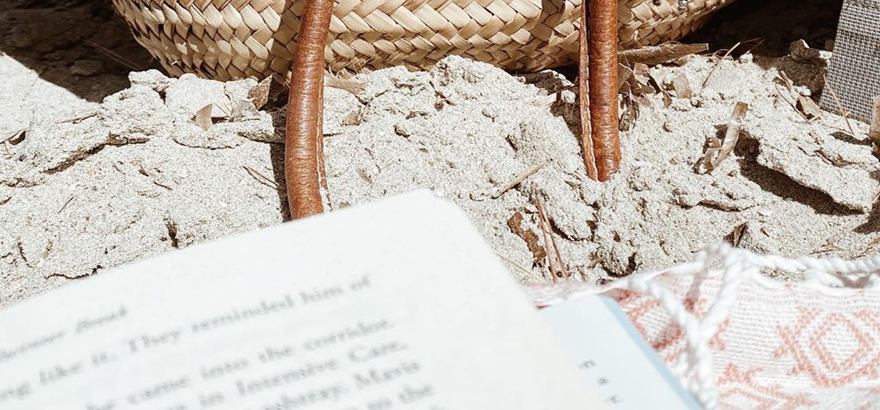
This poem by Karin Boye, maybe her most famous one, is closely connected to spring and its symbolic meaning of rebirth, but looking at my Amaryllis bud about to burst open, I think it qualifies as an ideal November poem! More information about the author below, after the brilliant translation of the poem by Jenny Nunn. If you want to listen to Karin Boye herself reciting the first part of the poem (in Swedish), here‘s the link.
AMARYLLIS — What’s in a name?
After learning more about this beautiful flower (thank you FTD), I believe Amaryllis is a more than worthy companion to Boye’s poem:
Amaryllis is the common name for flowers of the genus Hippeastrum. Hippeastrum is Greek for horseman’s star or knight’s star, as the flowers have a star-like shape. The genus Hippeastrum has about 90 species and over 600 hybrids and cultivars. It is native to tropical regions of South America, the Caribbean, and Mexico.
According to Greek mythology, the amaryllis originated from the love Amaryllis had for Alteo. Amaryllis, a maiden, fell in love with the shepherd Alteo. He was strong and handsome, and had a passion for flowers. To learn how to win his affection, Amaryllis went to the Oracle of Delphi for advice. On the Oracle’s orders, she stood in front of Alteo’s house for thirty nights piercing her heart with a golden arrow. On the thirtieth night, a beautiful flower grew from her blood and helped her win Alteo’s love.
The amaryllis commonly means determination, beauty, and love. The Victorians associated amaryllis with strength and determination because of their height and sturdiness. Amaryllis can also mean success, and are commonly given as gifts of hard-won achievement.
THE ENGLISH VERSION by Jenny Nunn
Of Course It Hurts
Of course it hurts when buds burst.
Otherwise why would spring hesitate?
Why would all our fervent longing
be bound in the frozen bitter haze?
The bud was the casing all winter.
What is this new thing, which consumes and bursts?
Of course it hurts when buds burst,
pain for that which grows
and for that which envelops.
Of course it is hard when drops fall.
Trembling with fear they hang heavy,
clammer on the branch, swell and slide -
the weight pulls them down, how they cling.
Hard to be uncertain, afraid and divided,
hard to feel the deep pulling and calling,
yet sit there and just quiver -
hard to want to stay
and to want to fall.
Then, at the point of agony and when all is beyond
help,
the tree's buds burst as if in jubilation,
then, when fear no longer exists,
the branch's drops tumble in a shimmer,
forgetting that they were afraid of the new,
forgetting that they were fearful of the journey -
feeling for a second their greatest security,
resting in the trust
that creates the world.
ABOUT KARIN BOYE
After all, Karin Boye’s poetry is about quite simple things — how to live and how life should be lived. It is about the pain of imperfection when perfection is desired. Of course it hurts, she says in one of her most often quoted poems. It does hurt as no person alive can ever be the one he or she really wants to be. But it was just in this pain of imperfection that her poems came into life. Many of them are love poems in which her aspirations are so much stronger than what she attains with her words. In a similar way other poems are about openness, justice and clarity. Afflicted by Purity is a formula for her constant efforts to understand the mystery that the contradictory life had given her insight into. There is no purity in life. It might exist in art, in poetry where she wanted to paint a wooden spoon in such a way, that people had an inkling of God.
To meet Karin Boye’s poems the first time is therefore to understand the duality between dreams and reality. Her words are often very beautiful, her poems vibrate of intrinsic music. But behind these beautiful words and this music, her anxiety and her split personality can be felt. Life is never what it ought to be. Reality escapes our dreams and walks its low paths, far from the clouds she wrote about in her first collections of poems. It is exactly this contrast that gives her poetry timeless life. Those of us who read her today, recognize ourselves through good and ill. She reaches us all the way and comes into us with her beautiful and bitter insight. Is that why we can so openly accept her words today, half a century after the end of her own life? Perhaps it is the duality in our own lives which makes her our companion, a Swedish classic.
— Text by Björn Julén, associate professor in literature and head of the Karin Boye Society 1989-1999.
There are few things that say more about a person than her vision of life: whether she sees it as a path, a battlefield, a growing tree or a rolling sea.
Karin Boye







